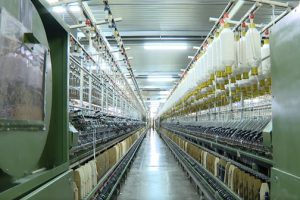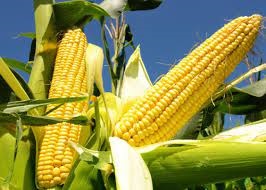
BY MENGESHA AMARE
Agricultural production has all the time required fertile soil, good weather condition and other factors suitability apart from determined and far-sighted farming community. It also needs to have some other spices to boost productivity via increasing soil fertility. Cognizant of the fact that a number of factors have to be fulfilled to come up with better production and productivity using soil fertilizers, The Ethiopian Herald contacted Asmamaw Bihonegn, a chemist graduated from Addis Ababa University working for a private company as a soil expert, to have a piece of information about how to increase production centering one of the core soil fertility requirements.
He said, “Fertilizers are compounds or mixtures delivered as solids, liquids or gases that supply essential nutrients to crops in soluble forms that are expedient and benign to handle. They may be applied to the soil or directly in the form of foliage or greenery meadow. Using fertilizer in combination with improved products and methods is of paramount importance in increasing production, productivity as well as profitability of nutrient used and reducing adverse environmental effects.”
As to him, scientists, development professionals, soil experts and community members in general are expected to be dedicated to scientific innovations that can potentially increase food production, protect the environment, and empower smallholder farmers to be diligent enough towards achieving the desired goals regarding the sector. In Ethiopia, the government, organizations and research institutions working on the area as well as the farming community need to work in unison to boost agricultural production through promoting market-oriented, climate-resilient, and sustainable agricultural techniques, supported by fertilizer subsidies and viable means to add value to the production increase, he added. In such away he said it is possible to sustainably increase agricultural productivity, strengthen resilience, and raised incomes for sustainable farming households.
He further elaborated that as soil is the skin of the earth, in which all the 8 billion inhabitants of the planet in general and the 120 million people in Ethiopia in particular reside, holding roots, water and nutrients, as well as a myriad of organisms and organic matters for crops, people have to all time keep its safety and crop suitability. According to Asmamaw, the very important thing in this regard is the government, business community, a range of companies and other concerned bodied are expected to support farmers in their supply chain to transition to reformative agriculture. Using a range of fertilizers, organic ones in focus, can restore soil health, reduce pollution, help meet national, continental and universal demand and capture carbon.
Using fertilizers in such a way that they are suitable to consider crop availability and environmental pollution free circumstance is quite advisable, too, he added. When fertilizers are applied, they react with soil minerals that render it less available for crop uptake, and it is quite useful to manage the phosphorus in starter fertilizer and to be careful about salt injury that can occur from excessive fertilizer placed near the seeds, crops or plants that are expected to bear the intended product.
As to Asmamaw, knowing the different behaviors of fertilizers in the soil, uptake by crops, and potential risks to the environment will help farmers make the best management decisions that balance convenience, economics, yields and environmental protection. He said, “Slow release fertilizers can be used on newly planted trees to encourage root growth and quicker establishment. It can also be used on established plants providing nutrients for growth and health. As fertilizers are not one-size-fits-all solutions, there might be shortcomings that can come up with negative repercussions.”
He further stated that, the most appropriate timing of fertilizers applications depends on the nutrient needs of the crop being grown, and it is very important to use organic fertilizers since high-efficiency organic fertilizers can increase crop yield without depleting soil quality, making their application a means of supporting both long-term food security and environmental preservation. Although organic farming has numerous advantages, many farmers are still hesitant to change their systems, primarily due to the concern that their yields may be minified during the conversion from conventional farming. Furthermore, using organic materials such as crop residues, compost, and poultry manure requires a great amount of human labor, he opined.
Therefore, it is essential for organic farming development to identify new and better organic fertilizers that both minimize crop yield losses and enhance soil quality during the conversion period. Traditional organic fertilizers mainly include human excreta, compost, and poultry manure, he added. He said, “Soil quality is an indicator of sustainable soil management that helps increase capacity of soil to function within ecosystem boundaries to sustain productivity, maintain environmental quality, and promote plant and animal health. Fertilizers and soil management practices can affect soil quality by altering the physical, chemical, and microbiological indicators. Besides, fertilizer efficacy is typically evaluated by analyzing changes in crop yield and soil quality.”
Hence, he elucidated, maintaining soil abiotic and biotic properties using organic fertilizers and balanced chemical fertilizers, especially improving potassium fertilizer application, could be useful dimension for the sustainable development of greenhouse vegetable production. He said land development and reclamation have also been regarded as an effective way to compensate farmland occupation. As far as the character of soils in chemistry is concerned, he said, soil enzymatic activities were already high in the soil before the compost was applied, which may have contributed to the small effect caused by any dose on soil activity.
For example, a significant positive effect on bulb weight and organic onion yield was once found as a result of the amendment and growing season. According to Asmamaw, utilizing fertilizers plays crucial role in fostering plant growth and development, with its functions ranging from being a structural constituent of macro-biomolecules to modulating several physiological or biological processes and tolerance to abiotic stresses.
He further explained that, the specific aspects of the effect of fertilizers on the microbiological activity of soils, and the spatial distribution of soil properties have been witnessed remarkable in due course of snowballing agricultural production and productivity. He also said that, in addition to demonstrating the recognized usefulness of a number of products as a source of nutrients to improve soil quality, a multitude of undertakings or agricultural activities employing fertilizers have shown that different kinds of organic fertilizers like agricultural and animal waste, municipal waste and treated human waste, have been proved effective to increase production and productivity out of all sorts of crops and fertilizer-oriented yields.
As to him, it is quite important to display the impact of fertilizers and vividly show farmers, who are reluctant to entertain different fertilizers on a variety soils in a bid to boom crop harvest unknowingly or calculatingly. “Properly utilizing fertilizers keeping the exact nature of the soil type and adjusting farming conditions compatible with many technical and socioeconomic aspects are crucial to make decisions for the better management of soil and crops, and to ensure the provision of healthy soil and healthy food in a sustainable manner,” he added.
In a nut shell, since fertilizers, be they are artificial or natural, are the components that increase soil fertility thereby heightening crop productivity and development, the farming community needs to use them wisely and properly as per the nature of crop and soil type. Naturally, soil comprises every fine rocks, a variety of minerals, and organic matter because of decomposition of biological aspects. True, at the time of crop or plant growing, indispensable nutrients are required for unimpeded advancement. Hence, incorporating fertilizers into the soil guarantees that the crop/plant is getting proper nutrition during its development for a better production as the former is of increasingly useful in boosting growth, accelerating maturation, and enhancing resistance, improving the quality of crops, fruit, seeds and plants.
THE ETHIOPIAN HERALD TUESDAY 6 JUNE 2023




